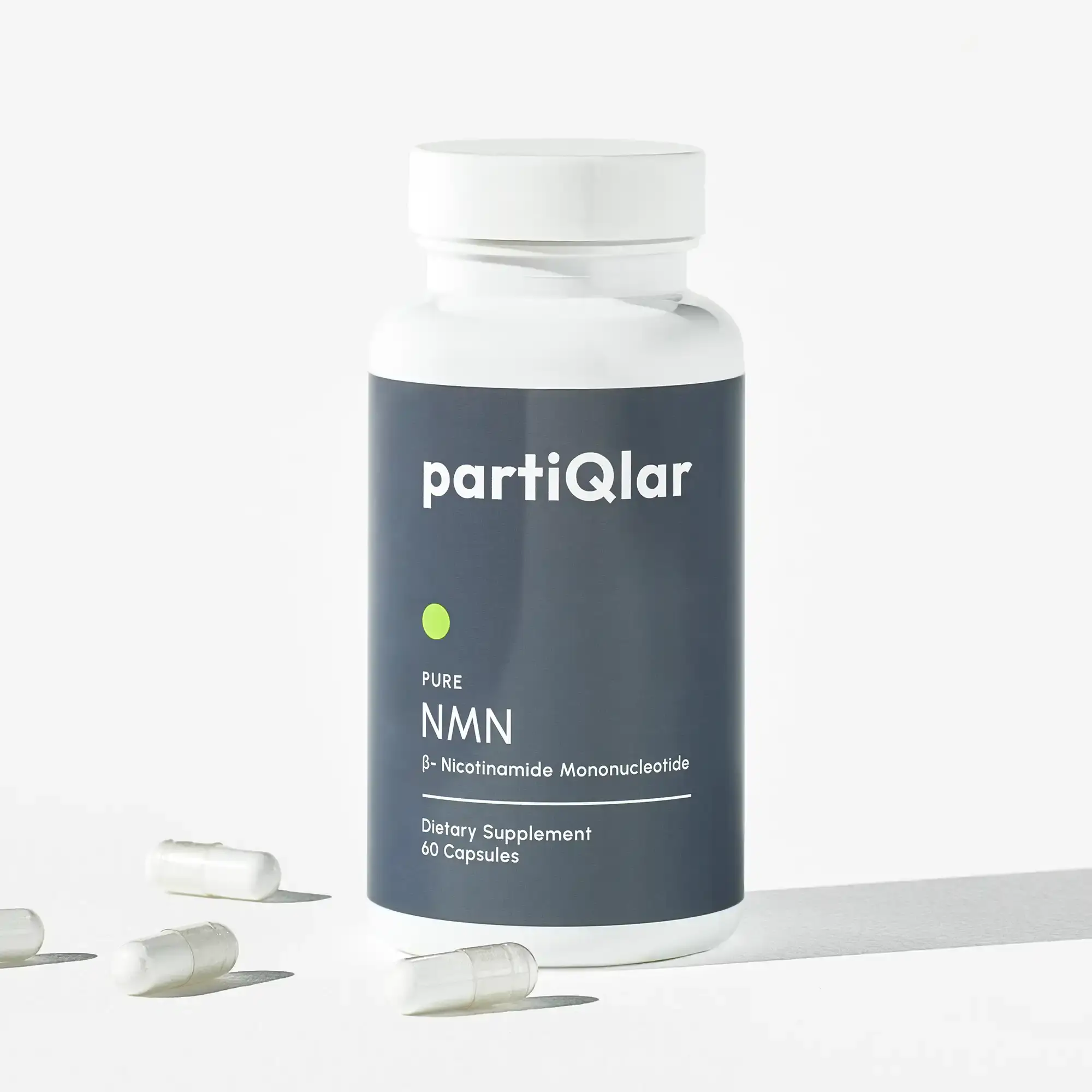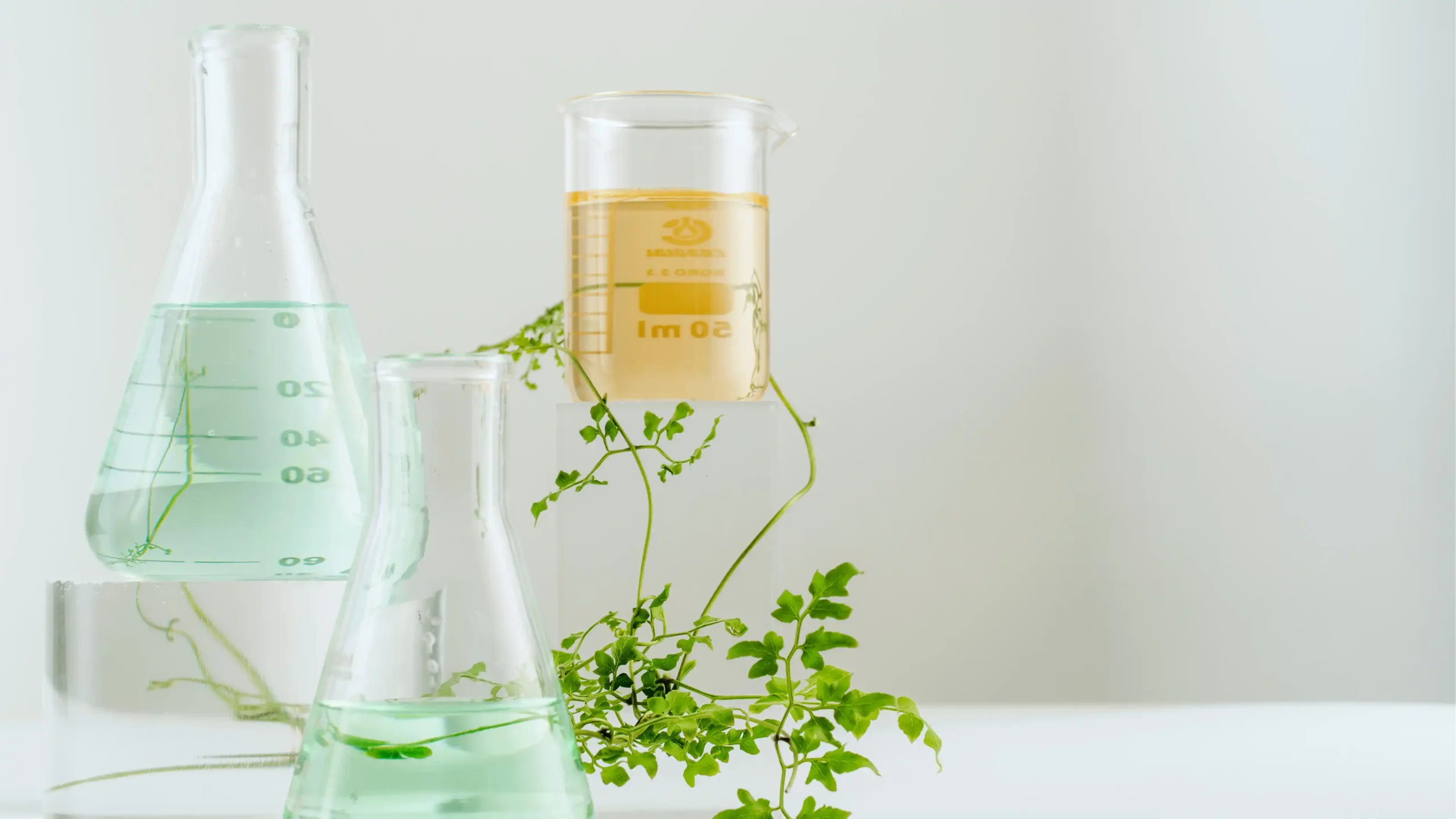Discover the essential supplements recommended by David Sinclair for enhancing health and longevity. Optimize your wellness journey.
5 Best Anti-Aging Vitamins
- Lifestyle
- October 17, 2024
- Robert U. partiQlar
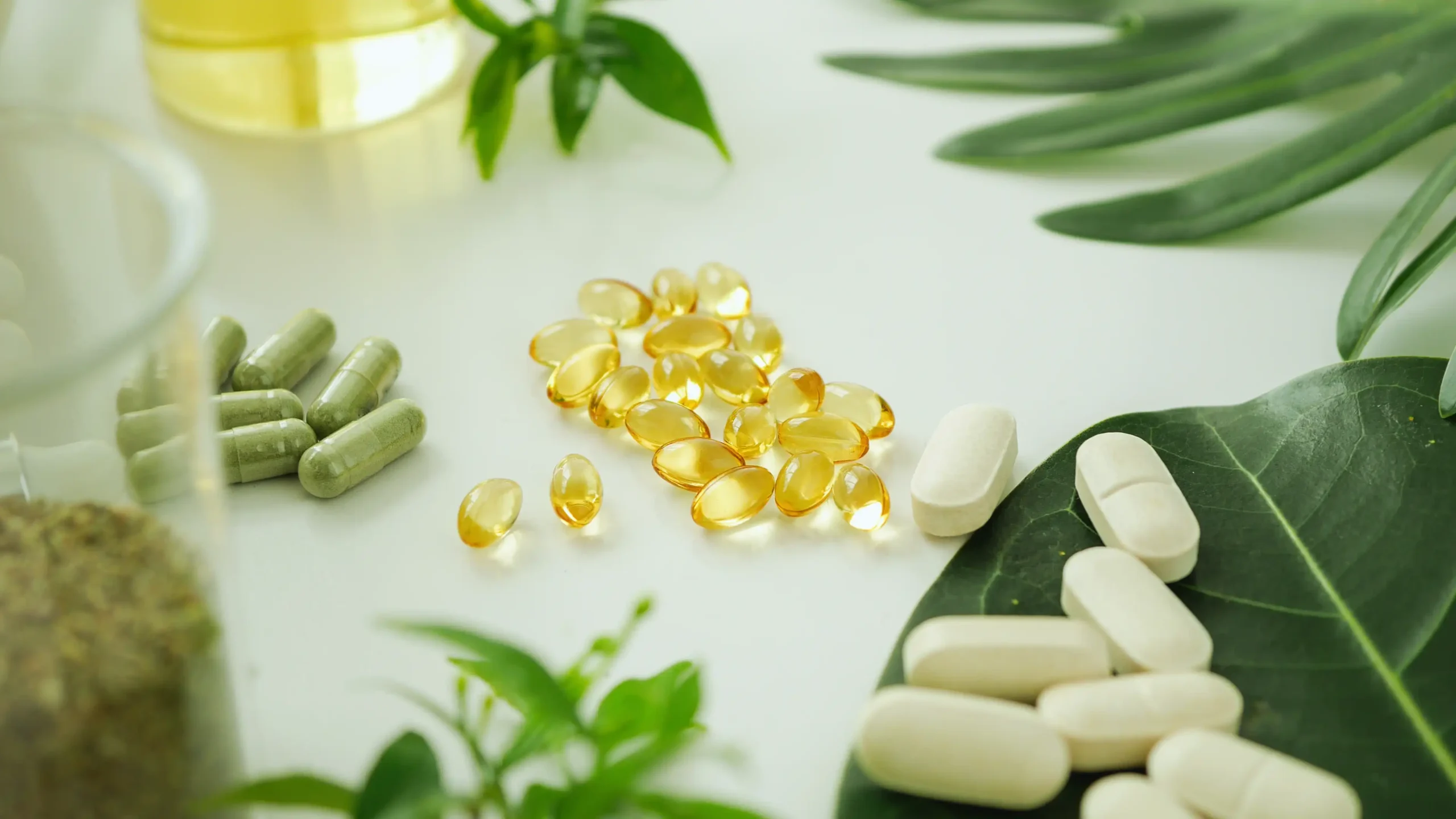
Related Product
Vitamins do not possess the ability to stop the natural aging process, they can undoubtedly play a crucial role in supporting healthy aging or even slowing it down. So, when considering what should be included in your anti-aging strategy – vitamins cannot be missed.
Vitamins for Anti-Aging
Our bodies experience a variety of physiological changes as they age, which can lead to a reduction in mental and physical ability, an increased risk of chronic diseases, and a compromised immune system. Although vitamins do not possess the ability to stop the natural aging process, they can undoubtedly play a crucial role in supporting healthy aging or even slowing it down. So, when considering what should be included in your longevity strategy – vitamins cannot be missed.
Vitamins function as antioxidants to defend against the harmful effects of free radicals and lower the chance of developing chronic illnesses. They also enhance cognitive function, support healthy skin and hair, and boost the immune system.
Let’s explore 5 vitamins crucial for anti-aging strategy in more detail, including Retinol – a form of vitamin A, vitamin C, vitamin E, vitamin K2 and Niacin – Vitamin B3, to learn more about their special advantages and how they can promote healthy aging.
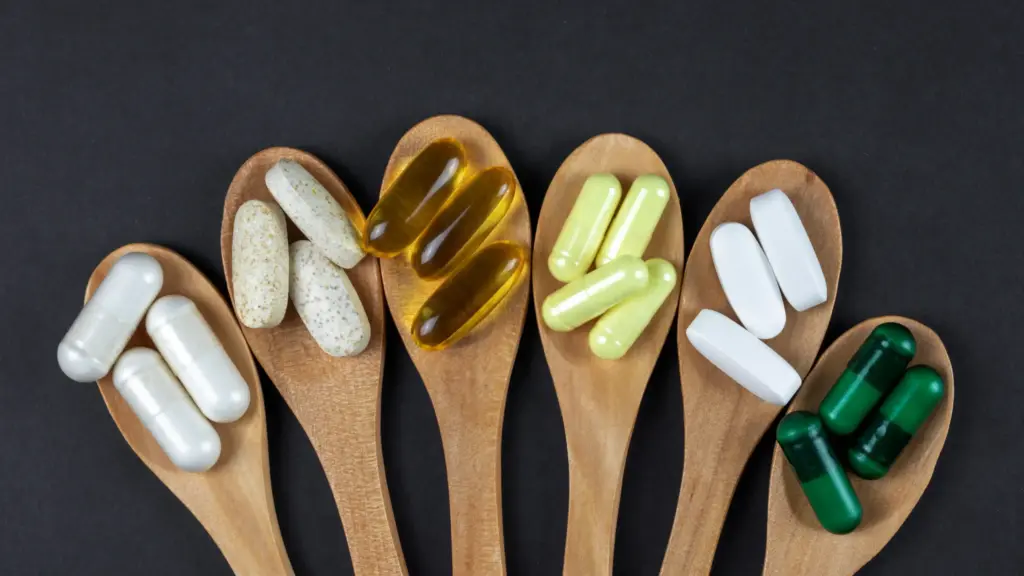
Retinol For Anti-Aging
Retinol is a form of vitamin A that has been extensively studied for its anti-aging benefits and has been shown to improve the overall appearance of the skin. It is essential for several physiological processes, such as the immune system and skin health. Retinol is an antioxidant that can defend the body from the damaging effects of free radicals, which can harm cells and speed up the aging process. Retinol also plays a significant role in promoting healthy skin, as it improves collagen production and cell turnover, which slows down as we age.
The recommended daily intake of Vitamin A
Recommended daily intake varies by age and gender, and is measured in micrograms (mcg) of retinol activity equivalents (RAE). The recommended daily intake for adult men is 900 mcg, while for adult women it’s 700 mcg (NIH, 2021). However, it’s important to note that excessive intake of Vitamin A (Retinol) from supplements can be toxic, so it’s best to consult with a healthcare professional to determine the appropriate dosage for individual needs.
Natural Sources of Vitamin A (Retinol)
The best natural sources of retinol are animal-based foods, especially liver, and other organ meats. Here are some examples:
- Liver: The liver is the richest source of retinol, with the beef liver being the most concentrated.
- Fish: Oily fish such as salmon, mackerel, and tuna contain retinol, but in lower amounts compared to liver.
- Eggs: Egg yolks are also a good source of retinol.
- Dairy products: Whole milk, cheese, and butter contain small amounts of retinol.
- Cod liver oil: Cod liver oil is a popular supplement that contains high levels of retinol.
It’s important to note that plant-based diets do not contain retinol, but they do contain carotenoids, which the body can convert to retinol. Carrots, sweet potatoes, spinach, and kale are all good sources of carotenoids. However, because the conversion rate of carotenoids to retinol is low, meeting the daily requirements of retinol from a plant-based diet alone is difficult.
Vitamin C for Anti-Aging
Probably the most popular of all vitamins – C is a necessary vitamin that is crucial for many biological functions, such as collagen formation, immune system performance, and antioxidant protection. As we age, our skin thins loses elasticity and is more vulnerable to free radical damage. These changes may accelerate the appearance of wrinkles, fine lines, and other aging symptoms.
It has been demonstrated that vitamin C may reduce these consequences by increasing the production of collagen, lowering oxidative stress, and guarding against UV-induced damage. Some studies have shown that vitamin C intake can enhance skin texture, lessen the appearance of fine lines and wrinkles, and even provide protection from photoaging (damage caused by exposure to UV radiation).
Recommended daily intake of vitamin C.
The recommended daily allowance (RDA) for adults is 90 milligrams for men and 75 milligrams for women, according to the National Institutes of Health (NIH). The RDAs are higher for women who are pregnant or nursing, ranging from 85 to 120 mg daily. Due to increased oxidative stress, smokers should increase their daily intake by 35 mg.
Natural Sources of Vitamin C
The USDA National Nutrient Database lists the following five foods as the highest concentration natural sources of vitamin C. Estimate of how much vitamin C each one contains in micrograms per 100 grams:
- Camu Camu (dried) – 2,394-3,000 mg
- Acerola Cherries (raw) – 1,678-1,941 mg
- Indian Gooseberries (raw) – 445 mg
- Rose Hips (dried) – 426 mg
- Red Peppers (raw) – 127 m.
Vitamin E for Anti-Aging
By eliminating free radicals and shielding cells from oxidative damage, vitamin E can help prevent these negative effects. Additionally, studies have demonstrated that vitamin E contains anti-inflammatory characteristics that could improve general health and support healthy aging.
According to research, consuming enough vitamin E may also help prevent or delay age-related illnesses such as cataracts, macular degeneration, and Alzheimer’s disease.
Recommended daily intake of vitamin EAccording to National Institute of Health adults should consume 15 mg, or 22.4 IU, of vitamin E daily. However, depending on factors including age, sex, and health state, vitamin E requirements may change. Women who are pregnant or nursing, for instance, may need more vitamin E, and those who have certain medical conditions or are on certain medications may be at higher risk of developing a vitamin E deficit.
Natural Sources of Vitamin E
The USDA National Nutrient Database lists the following five foods as the highest concentration natural sources of vitamin E. Estimate of how much vitamin E each one contains in mg per 100 grams:
- Wheat germ oil – 149.4 mg
- Sunflower seeds – 35.17 mg
- Almonds – 26.2 mg
- Hazelnuts – 15.03 mg
- Peanut butter – 9.08 m
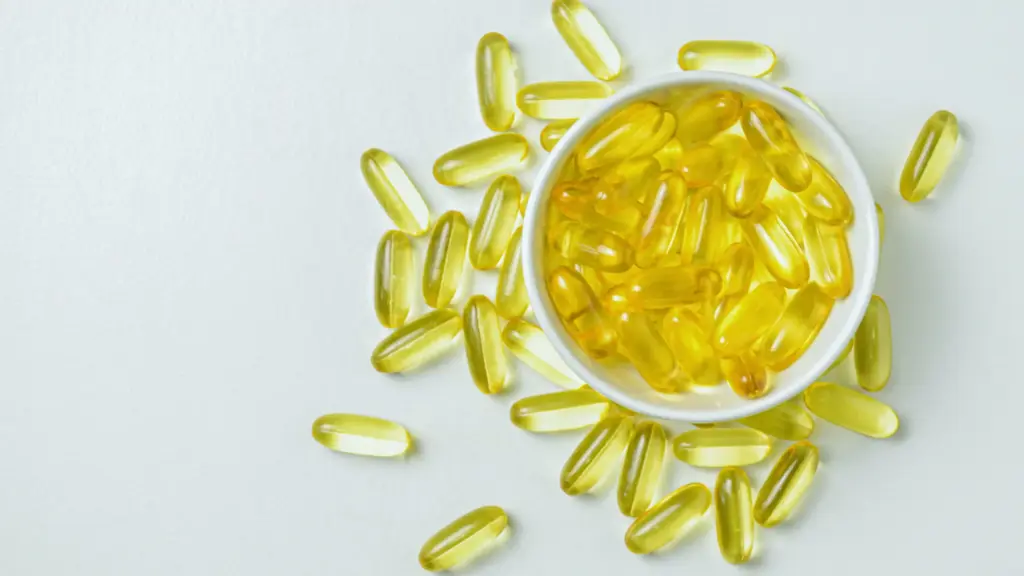
Vitamin K2 for Anti-Aging
Recent research suggests that vitamin K2, specifically its subtype menaquinone-7 (MK-7), may have anti-aging properties by promoting bone health and decreasing age-related bone loss. In a 2018 study published in the Journal of Bone and Mineral Research, researchers discovered that daily MK-7 supplementation for three years enhanced bone mineral density and reduced the risk of fractures in postmenopausal women with osteoporosis.
in addition to its effects on bone health – Vitamin K2 may have anti-aging effects on cardiovascular health as well. According to a study published in the journal Nutrients in high-dose vitamin K2 supplementation reduced arterial stiffness and endothelial function in healthy postmenopausal women. Another study published in the Journal of the American College of Cardiology found that higher vitamin K2 intake was linked to a decreased risk of coronary heart disease in older persons.
Vitamin K2 may have anti-aging characteristics due to its function in activating proteins involved in bone and cardiovascular health, as well as it’s antioxidant and anti-inflammatory capabilities. More research is needed, however, to completely understand the mechanisms underlying vitamin K2’s anti-aging properties.
Recommended daily intake of Vitamin K2
The recommended daily consumption of vitamin K2 varies according to age, gender, and other factors. In general, depending on the specific subtype of vitamin K2, the recommended daily intake of vitamin K2 ranges from 45 to 185 micrograms (mcg) per day. Menaquinone-4 (MK-4) and menaquinone-7 (MK-7) are the two most studied vitamin K2 subtypes. While the recommended daily dose for these subtypes is unknown, several studies show that 100-200 mcg of MK-4 and 90-360 mcg of MK-7 may be good for bone and cardiovascular health. It should be noted that the recommended daily dose of vitamin K2 is still being researched.
Natural Sources of Vitamin K2
The USDA National Nutrient Database lists the following five foods as the highest concentration natural sources of vitamin E. Estimate of how much vitamin E each one contains in micrograms per 100 grams:
- Natto: 1103 mcg
- Hard Cheeses (e.g. Gouda, Edam, Swiss): 76 mcg
- Soft Cheeses (e.g. Brie, Blue Cheese, Feta): 56 mcg
- Egg Yolks: 32 mcg
- Butter: 15 mc.

Vitamin B3 for Anti-Aging
Vitamin B3, also known as niacin, is an essential nutrient that plays a key role in energy metabolism, DNA repair, and cellular signaling. Recent studies suggest that vitamin B3 can help slow the aging process by increasing levels of NAD+ in the body. NAD+ is involved in many cellular processes, but its levels naturally decline with age, leading to age-related diseases.
Vitamin B3 can increase NAD+ levels on its own, but the conversion of niacin to NAD+ requires several enzymatic steps and may be limited by the availability of other nutrients. Nicotinamide mononucleotide (NMN), on the other hand, is a more direct precursor to NAD+ and has been shown to rapidly increase NAD+ levels in cells and tissues. Therefore, while both vitamin B3 and NMN can increase NAD+ levels, NMN is more effective at doing so.
Recommended daily intake of Vitamin B3
According to the Institute of Medicine, National Academy of Sciences the recommended daily intakes of vitamin b3 are:
- Males (14 years and older): 16,000 mcg
- Females (14 years and older): 14,000 mcg
- Pregnant women: 18,000 mcg
- Breastfeeding women: 17,000 mcg
Natural Sources of Vitamin B3
The USDA National Nutrient Database lists the following five foods as the highest concentration natural sources of vitamin B3. Estimate of how much vitamin B3 each one contains in mg per 100 grams:
- Chicken liver: 14.8 mg
- Tuna (yellowfin, cooked): 10.8 mg
- Turkey (cooked): 7.3 mg
- Beef liver: 7.0 mg
- Peanuts (roasted): 12.8 mg
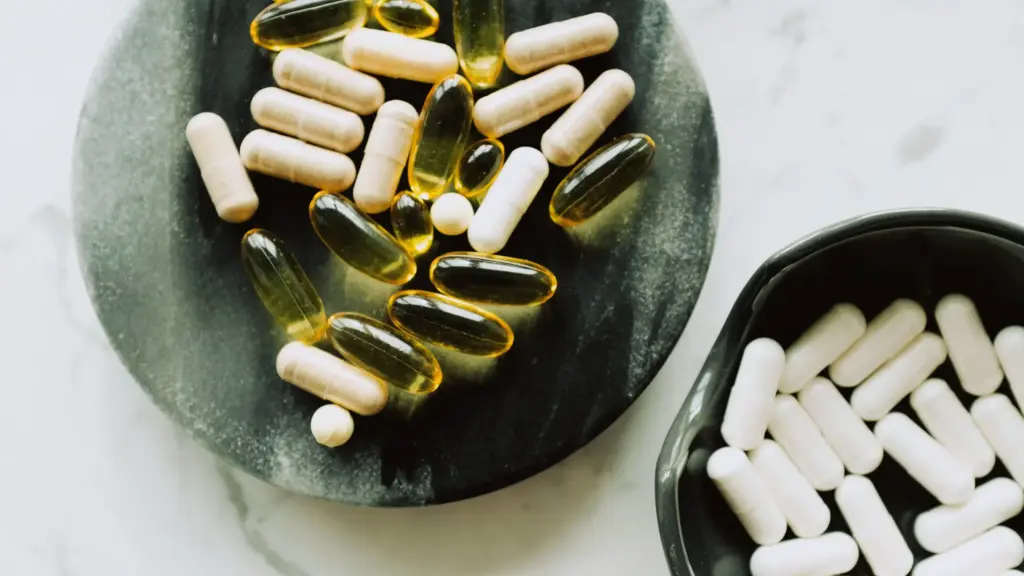
Final Thoughts
While a balanced and nutritious diet is necessary for overall health and well-being, specific vitamins can play a particularly important role in promoting healthy aging. The five vitamins discussed in this article, retinol (vitamin A), vitamin C, vitamin E, vitamin K2, and niacin (vitamin B3), are known for their anti-aging properties and can provide a variety of benefits such as improved cognitive function, a stronger immune system, and healthier skin and hair.
It is important to highlight, that a healthy and balanced diet should contain all vital vitamins and minerals, not just these five. Consuming a range of nutrient-dense meals while avoiding processed and sugary foods will help guarantee that we are getting all of the key vitamins and minerals we require to maintain maximum health and well-being.
To summarize, while the five vitamins covered in this article can be especially beneficial for promoting healthy aging, a well-balanced diet that includes all important vitamins and minerals is critical for general health and well-being.
Explore Products
Related Articles
The decline in physical activity often correlates with aging. This article examines whether aging leads to decreased activity or if reduced movement accelerates aging. It emphasizes the importance of maintaining regular exercise to promote longevity and mitigate aging effects.
NAD+ is a crucial molecule for energy metabolism, DNA repair, and gene expression. This article details its importance, how levels decline with age, and methods to boost them for better health and longevity.
